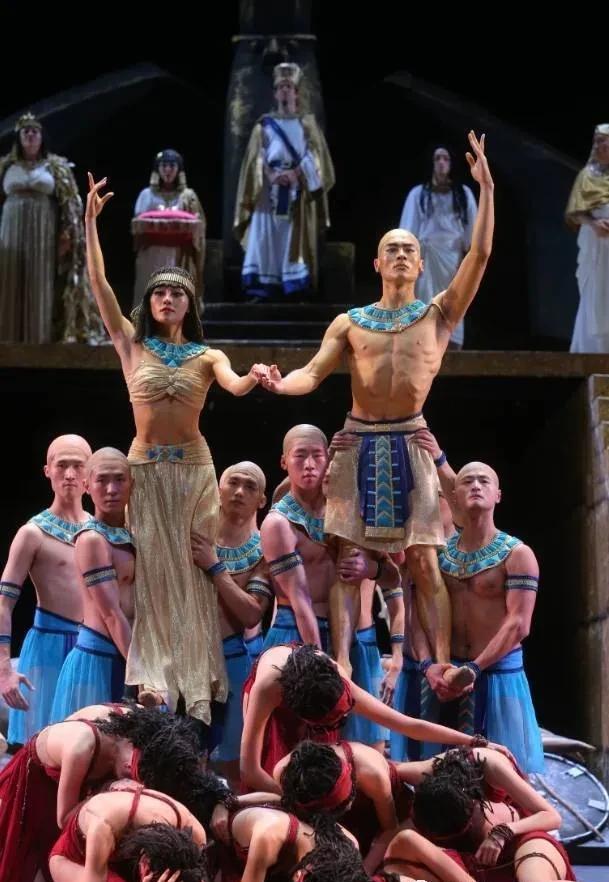The 19 world-famous songs at the Winter Olympics are: Rossini's "William Retreat" Overture, Elga's "Majestic March", Tchaikovsky's "The Nutcracker", "Reed Flute" and "Small March", Bach's "Orchestral Suite No. 3 in D major" "Gig", Verdi's "Aida" "Triumphal March", Johann Strauss Jr.'s "The Sound of Spring", Beethoven's "Turkish March" (non-Mozart), Beethoven's "Fifth Symphony "Destiny", Glinka's "Ruslan and Lyudmila" overture , Verdi's La Traviata "Drinking Song", Bizet's Carmen Overture, Brahms's Hungarian Dance No. 5, Valffer's Ice Skating Round Dance, Supe's Hussar Overture, Vivaldi's Seasons "Spring", Mozart's Fortieth Symphony, Dvořák's Ninth Symphony "From the New World", Tchaikovsky's Swan Lake, "Four Little Swan Dances". Finally, the background music of the Chinese team appeared in "Singing the Motherland".
Today we introduce Verdi's Triumphal March from Aida.
Giuseppe Verdi was an Italian composer who began studying music at the age of 13, enrolled in the Milan Conservatory in 1832, was not admitted, and remained in Milan to study music with the musician of the La Scala Opera (Lavinia). In 1842, he composed his second opera, King Nabuco, which was a success, which made him a first-class Composer in Italy. At that time, Italy was in the midst of a revolutionary wave to break away from Austrian rule, and he inspired the people with his operas "Ernanni" (1844), "Alzira" (1846), "Lombards" (1848), "Battle of Legnano" (1849) and revolutionary songs, earning him the title of "Musical Master of the Italian Revolution". He composed a total of 28 operas and 7 choral works during his lifetime.
His main representative works include operas: "Rigoletto", "La Traviata", "Troubadour", "Othello", "Aida", "Sicilian Vespers", "Falstaff", "Masquerade", "Don Carlos"; vocal music "Requiem", "Four Religious Songs".
"Aida" is a four-act opera, in 1871, when the Suez Canal was opened, the Governor of Egypt invited the famous Italian composer Verdi to compose on this theme, so this large-scale opera with strong Egyptian characteristics came into being. This is one of the most performed opera performances in the world today. After completing Aida, Verdi did not compose a new opera for fifteen years, except for a requiem.

The opera is based on a plot provided by the French Egyptologist Auguste Mariet Bey, written by Gislanzoni. The plot is more tangled: Ethiopian princess Aida and her father, Amonasro, are captured by the Egyptian army. The young Egyptian commander-in-chief, Radames, fell in love with Aida. Amonasro instructed Aida to spy on military intelligence. Ladamus deliberately leaked secrets inadvertently. The Egyptian princess Annelias was snubbed by Elladames and denounced the leak, so Ladames was sentenced to be buried alive for treason, and Aida went to the dungeon and died with Ladames.
This opera has Verdi's heroic style, and was grandly premiered in Cairo, egypt, on December 4, 1871, and "Aida" conquered the audience with its complex and touching plot, beautiful melody, gorgeous and spectacular scenes, making it a classic play that has been performed for a long time on the world opera stage.
The famous American music critic Goulding said: "If the greatest opera composer in the history of music is reduced to only two, then it is Verdi and Wagner, and in Verdi's opera, the leader is Aida." ”
Triumphal March is the most glorious passage in the second act of Aida and one of the most famous marches in the history of music. After the chorus, the loud military trumpet plays a high-pitched and majestic melody.